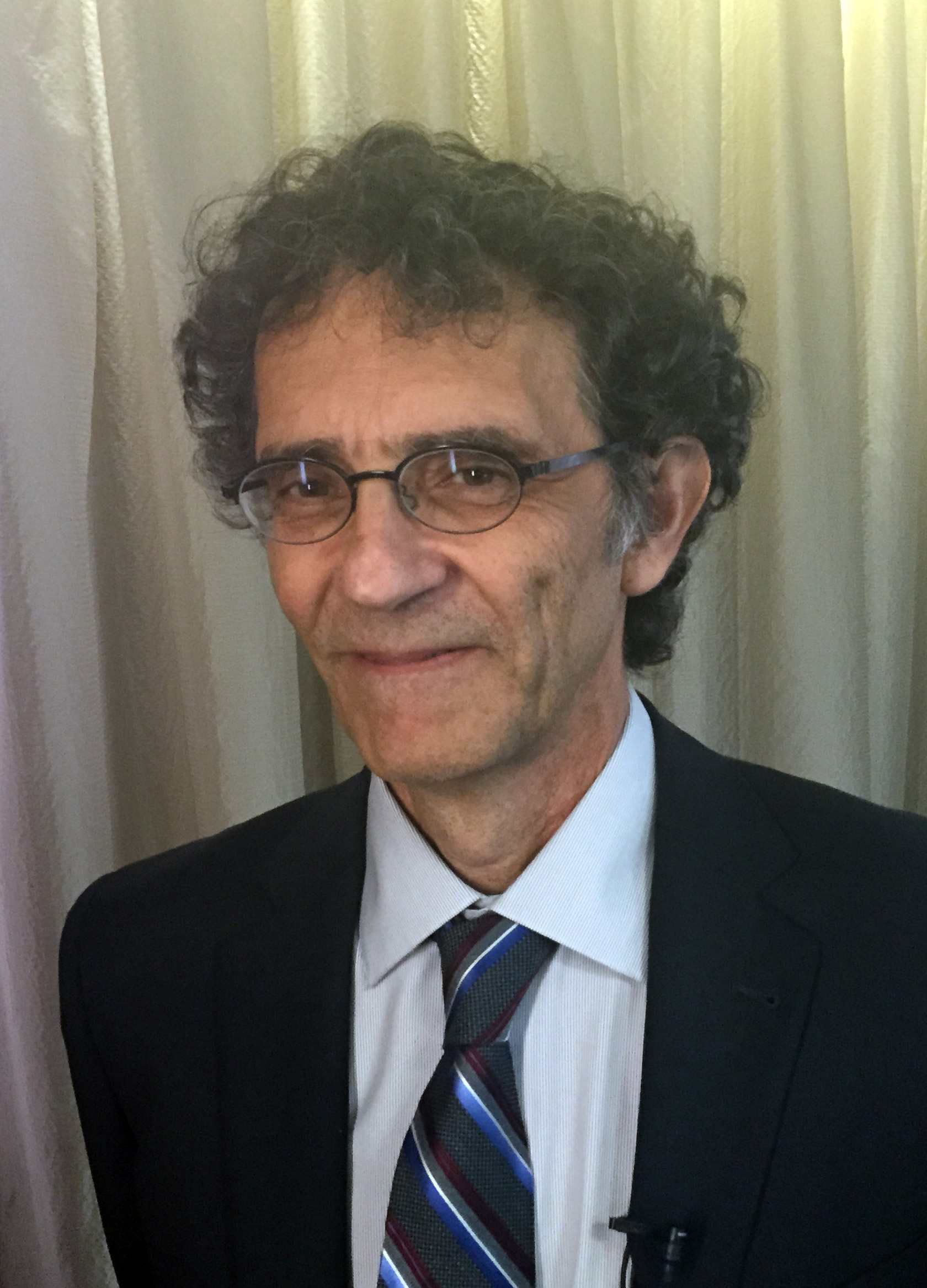KU dean candidate emphasizes empowering leadership style, reliance on data for liberal arts
Kansas University College of Liberal Arts and Sciences dean candidate Luis Casian began his public presentation by displaying an “eight-dimensional” circular illustration formed by an intricate web of multicolored lines.
For one, he said, to show “how beautiful math is.” Two, he said, to show something with many points and interconnectivity — important for bringing the liberal arts into a complex 21st century world.
Casian, professor and chair of the Department of Math at The Ohio State University, spoke Friday at the Kansas Union.
He was the last of four KU CLAS dean candidates to visit campus and deliver a talk on the assigned theme, “21st Century Challenges to Liberal Arts and Sciences (and how KU will address them).”
Casian said he is originally from Mexico and became a U.S. citizen in 2001.
He has been on the faculty at Ohio State since 1988 and has been department chair since 2010, overseeing a budget of about $18 million.

Luis Casian
In looking at KU’s Bold Aspirations strategic plan, he said, he saw a strong affinity between the university’s goals and things he’d been doing in Ohio.
“I was really amazed,” he said. “Things really match.”
Casian cited five overarching challenges for liberal arts: a loss of relevance in the 21st century; adequately reflecting a modern world overflowing with data; underrepresentation of women and minority students and faculty; adapting teaching and learning to the 21st century; and having to do more with less.
To help ensure liberal arts majors are relevant to the job market, Casian said, he supports interdisciplinary majors within CLAS and is working on creating a combined math and English major at his university.
Employers like math majors because of their enhanced math skills, Casian said, but moving into leadership requires proof of other skills, such as good writing.
Regarding diversity, Casian said his ideas include departmental-level international partnerships and special hiring efforts.
In Ohio, Casian helped create a summer study program for students from underrepresented groups. For faculty, he said, making positions available for partners and spouses, as well as underrepresented groups and women, can help.
“That’s what has worked at Ohio State, in my department,” he said. “This is a great opportunity, a great way of bringing talent to the university, when it’s possible to do that.”
Casian illustrated his points with a number of graphs and charts, and emphasized the importance of data in making decisions. He also emphasized local, state (including the Board of Regents and other universities and colleges statewide), national and international collaboration.
He also emphasized an empowering management style.
He said he was not a micro-manager, wanted to trust department chairs to make their own decisions, and create an environment where leaders try to say “yes” to ideas first, even if — once vetted — they must ultimately say “no.”
One example in Ohio, he said, was when a lecturer came to him with an idea to create a massive open online course, a free college class that is streamed on the Internet, on relatively short notice. Casian said he took a risk, gave him resources, and what resulted was wildly successful: a MOOC that ended up teaching more people than the whole math department did in a year and even earned a headline in Forbes that read, “Forget Cat Photos: This Prof is Making Calculus Go Viral.”
As a leader, you don’t make change, you introduce change, Casian said. “It’s always other people with you.”
Casian’s math research focuses on representation theory, representation theory of real semi-simple Lie groups and integrable systems, according to KU.
He also has taught at the Massachusetts Institute of Technology, the University of Utah and the IAS School of Mathematics in Princeton, N.J. Casian is an Alfred P. Sloan Research Fellow and earned a doctorate in mathematics from MIT in 1983.
Dean candidates Walter Hawthorne, professor and chair of the Department of History at Michigan State University; Mark P. Jones, professor of political science and the Jamail chair in Latin American studies at Rice University; and Carl Lejuez, professor of psychology and associate dean of research for the College of Behavioral and Social Sciences at University of Maryland-College Park, previously gave presentations on campus.
The new CLAS dean will replace Danny Anderson, who left KU to become president of Trinity University in San Antonio.







